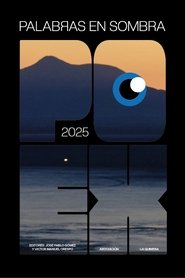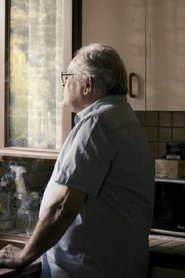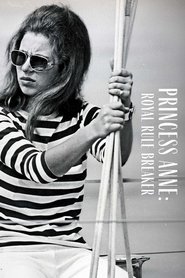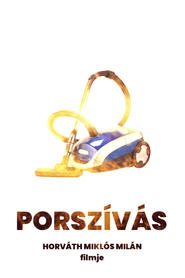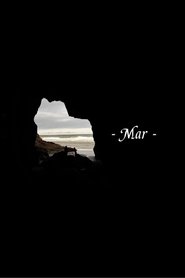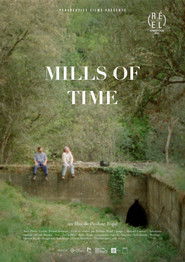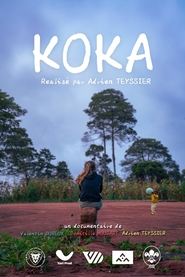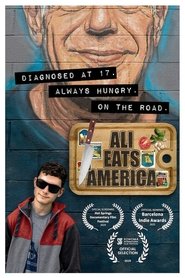New Documentary Movies on Tub Tv - Page 386
-
Ngoor Gayan
2025
Ngoor Gayan
2025
Two young men arrive in a small village in Senegal, fleeing the dull life that awaits them in Barcelona. After giving up on the documentary about emigration they had in mind, they are drawn to a local story that will lead them to embark on an unexpected project. -
Palabras en sombra
2025
Palabras en sombra
2025
Through different feature films, María Zambrano's philosophy of the search for poetic reason is explored. Discovering the connection between beauty and cinema, we enter into a trance that will remind us of the passion for the seventh art. -
Yvon
2025
Yvon
2025
-
Princess Anne: Royal Rule Breaker
2025
Charting the life of the trailblazing royal who's done it all her own way. -
Vacuumin’ Around
2025
Vacuumin’ Around
2025
A documentary about a person who cleans his room with a vacuum cleaner, filled with disasters and mishaps. -
- Mar -
2025
- Mar -
2025
-
The Dark Mirror
2025
The Dark Mirror
2025
An impressionistic, archive-based look at the stories of people who built some of Britain's canals. -
Mills of Time
2025
Mills of Time
2025
On the wild banks of a river in the Cévennes, Philip and Tristan restore the irrigation system of a 17th-century water mill. Following the water’s path, they work together, pausing, resting, and sharing moments of calm. -
O lalood i Cepo’
2025
O lalood i Cepo’
2025
-
Here I Belong
2025
Here I Belong
2025
Flora and Louise met in Yaoundé (Cameroon). They fell in love and ever since then have never left each other's side. By pushing open the door of the nonprofit housing them, I discovered the story behind their refugee status and the reasons behind their exile. -
To Be Eighteen (The War)
2025
In this cinematic essay, the filmmaker uses her own "images" to illustrate the memories of Lisa (Yelyzaveta), an 18-year-old Ukrainian woman who lived in Montreal for a few months. Two strangers, so far apart yet so close. -
Koka
2025
Koka
2025
-
Ali Eats America
2025
Ali Eats America
2025
17-year-old Ali Allouche, who is battling cancer, binges on food shows during his chemo treatments. Inspired by Anthony Bourdain’s "Parts Unknown," Ali plots a cross-country adventure to visit innovative chefs and immerse himself in America’s rich food culture. -
Ik was een kind
2025
Ik was een kind
2025
A reformed girl reports sexual abuse within her family, but the accused are acquitted. Twenty-five years later, how does her community look back on what happened? -
Tida no unmei
2025
Tida no unmei
2025
-
Observer
2025
Observer
2025
Can we observe the world without affecting it? An adventure in eight chapters from around the world where a group of professional scientists taking part in a playful, philosophical experiment. -
I Think We Begin as Light
2025
Could a collaboration between plants, light and microorganisms show us a new and more fruitful path for agriculture? Take a journey beneath the earth's surface and meet the farmers who are making the attempt.
 Netflix
Netflix
 Amazon Prime Video
Amazon Prime Video
 Apple iTunes
Apple iTunes
 Apple TV Plus
Apple TV Plus
 Disney Plus
Disney Plus
 Google Play Movies
Google Play Movies
 Paramount Plus
Paramount Plus
 Hulu
Hulu
 HBO Max
HBO Max
 YouTube
YouTube
 fuboTV
fuboTV
 Peacock
Peacock
 Peacock Premium
Peacock Premium
 Amazon Video
Amazon Video
 The Roku Channel
The Roku Channel
 AMC+
AMC+
 Kocowa
Kocowa
 Hoopla
Hoopla
 The CW
The CW
 Vudu
Vudu
 Starz
Starz
 Showtime
Showtime
 PBS
PBS
 Pantaflix
Pantaflix
 FXNow
FXNow
 Tubi TV
Tubi TV
 Kanopy
Kanopy
 Comedy Central
Comedy Central
 Crunchyroll
Crunchyroll
 Microsoft Store
Microsoft Store
 Redbox
Redbox
 Sun Nxt
Sun Nxt
 ABC
ABC
 DIRECTV
DIRECTV
 Crackle
Crackle
 Fandor
Fandor
 Plex
Plex

